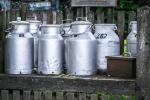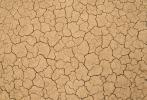H2020 Organic-PLUS Project: Pathways to phase out controversial inputs from organic farming in Europe
- Type Project
- Status Filled
- Execution 2018 -2022
- Assigned Budget 4.091.526,00 €
- Scope Europeo
- Main source of financing Horizon 2020
- Project website Proyecto Organic-PLUS
Organic-PLUS has generated new knowledge for the phasing out of many controversial inputs used in organic and conventional agriculture. To minimize the need for copper and mineral oils, it has built on previous research (e.g., Blight Mop, RepCo, Co Free) and extended it to crops that have been poorly managed until now, particularly Mediterranean tree crops (e.g., citrus and olives) and greenhouse horticultural crops (e.g., tomatoes). Its use in potatoes in Northern Europe was also investigated, particularly in combination with decision support systems (DSS) and cropping system redesign. The use of copper, mineral oils, and sulfur for crop protection in Europe was mapped (Katsoulas et al., 2020) and the available alternatives (Andrivon et al., 2020). With this knowledge, it was possible to demonstrate in field and greenhouse trials that, with a combination of methods—especially decision support systems, input substitution, and redesign—legal copper limits can be halved as a first step, and the phasing out of mineral oils and sulfur is feasible. For the investigated inputs for livestock systems, the complete elimination of antibiotics and anthelmintics is not feasible. Further research at TRL level 6 (technology readiness level) is needed to improve our understanding of the use of anti-infective and immunostimulating molecules from natural plant sources as alternatives to synthetic products. The research published several examples of promising results (e.g., with spruce bark) and also expanded to include zinc used in pig production. Alternatives to straw bedding were found to be viable, although cost and availability remain problematic. In the work related to soil inputs (alternatives to animal manure from non-organic farms, animal-based fertilizers, peat, and plastic mulch) were investigated. Elimination of all inputs is feasible and the TRL was increased, but more innovation action research is needed. The feasibility of elimination, including LCA (life cycle assessment) analysis, was investigated for all controversial inputs using a common framework with clear policy recommendations, including the identification of knowledge gaps. The exploitation of DSS and novel concepts was carried out on stakeholder farms and through patent research on alternatives to bioplastics. This included systems modeling to assess cost-benefit, feasibility, and operational management options for the different pathways, using on-farm scenarios across Europe with economic, technical, and operational feasibility. As a unique feature of Organic-PLUS, the technical and socioeconomic research was complemented by social science studies on consumer conceptions of controversial inputs. This included the largest representative public opinion survey on controversial inputs conducted to date, with over 15,000 participants in seven European countries. In addition, research on public participation was conducted using innovative hybrid citizen-farmer competition forums in the United Kingdom. Italy and Norway have deepened our understanding of the dialogue between science and society regarding controversial inputs in agriculture (see the dedicated website: www.improvingorganic.life). All findings were widely disseminated through on-farm meetings, academic outreach, conferences, and policy documents.
Certified organic systems have phased out controversial inputs, such as synthetic pesticides and fertilizers. However, some inputs, currently permitted in organic and conventional systems, are still considered controversial by consumers: copper and mineral oils applied for crop protection, antibiotics used in animal production, and peat and plastics used in agricultural production. The project adopted a transdisciplinary, multi-stakeholder approach, applying social, natural, and economic sciences, as well as farmers' knowledge. We conclude that all controversial inputs can be phased out, although timelines vary. For copper, its use can be reduced from 4 kg/ha/year to 2 kg/ha starting in 2027. Mineral oils for plant protection can be eliminated immediately, as vegetable-oil-based alternatives are available. Non-organic straw can be removed immediately; alternative bedding is available, and a 25% increase in organic matter contributes to its availability. Alternative bedding, for example, from agroforestry supply chains, is also becoming increasingly available. Non-organic manure can be eliminated immediately; alternative fertilizers are available. Non-organic fertilizers can be phased out soon, but there is currently limited availability of alternatives. Phasing out peat for nursery crop production and for mushrooms is possible in the EU starting in 2030 (it is a legal requirement in the UK by 2028). Plastic mulch derived from fossil fuels can be phased out by 2030. Farmers already use alternative biodegradable bio-based plastics, but they require further research. Phasing out antibiotics (in addition to their use for individual animal care) requires system redesign for intensive organic systems. Phasing out anthelmintics is difficult, as it requires mixed grazing over larger areas and redesign with, for example, agroforestry. Novel seven-year "Innovation Phase-Out Missions" are proposed to assist the bioeconomy with a phase-out. Successful phase-outs require both "input substitution" and "system redesign."
The Organic-PLUS project has the overall objective of providing high-quality, transdisciplinary, and scientifically grounded decision-making support to help all actors in the organic sector, including national and regional policymakers, reach the next level of the EU organic success story. In doing so, organic food systems can be more faithful to organic principles, but equally to the EU bioeconomy agenda. The objectives of Organic-PLUS are: 1) to identify and value controversial inputs currently used in European agriculture; 2) to provide specific technical solutions to minimize or phase out their use; 3) to provide environmental, social, and economic assessments of phase-out scenarios; 4) to disseminate and negotiate knowledge, ideas, and results to maximize impact. We use a transdisciplinary research approach; the consortium includes 11 universities and 15 multi-stakeholders from 9 EU and 3 partner countries. We combine scientists from many academic disciplines with advisors, farmers, and other stakeholders in participatory research design. Organic-PLUS has three major "topical" work packages called PLANT (researching alternatives to copper and mineral oils), LIVESTOCK (researching alternatives to synthetic vitamins, antibiotics, and novel animal bedding), and SOIL (researching alternatives to peat, animal-based fertilizers, and plastic mulch). Topical work is supported by IMPACT (researching consumer perceptions of controversial inputs and disseminating knowledge with stakeholders) and MODEL (using a sustainability assessment methodology to deliver phase-out scenarios). The LEAD work package is also responsible for managing international scientific and European industry advisory boards, ensuring impact on industry and policy development. Project outputs are disseminated through peer-reviewed publications targeted at farmers, social media, on-farm events, and international conferences. We will also ensure impact through citizen juries and engagement with policymakers.
Advances surpassing the state of the art were achieved in multiple areas. The research produced diverse and tailored methods for phasing out all controversial inputs from organic and conventional agriculture. This was carried out in a participatory manner with researchers, farmers, advisors, industry partners, charities, and consumers. Our results provided novel insights into controversial topics in LCA (life cycle assessment) datasets and other socioeconomic assessment methods such as feasibility and RISE (Response Inducing Sustainability Assessment). Decision support systems and digital tools were combined with laboratory, greenhouse, and field trials and complemented by participatory research methods, citizen/farmer juries, and surveys. This combination of methods in a transdisciplinary approach for a very specific and focused mission—the "Phase Out All Controversial Inputs"—is novel in itself. The results show that phasing out can become a reality for many inputs soon, and for others in the next 10 to 20 years, with the innovative action research proposed in our policy recommendation. This is expected to have a very high impact—a fundamental turning point—for organic agriculture in 25% of Europe's land area. The impact is not limited to organic, as all inputs are equally controversial in the remaining 75% of non-organic (conventional) agriculture, and also outside Europe. EU regulation on organic certification is followed in many parts of the world; however, controversial inputs are not yet a major debate. Phasing out in Europe will affect everyone. As many inputs are derived from fossil fuels or have significant effects on climate change (e.g., peat), or improve soil health (phasing out copper to store more carbon), phasing out all of agriculture will help with the radical changes needed to avoid further climate catastrophe. Greater impact monitoring has been promised for the next five years, and the results are being incorporated into new projects and calls for innovation missions.
- COVENTRY UNIVERSITY (COVENTRY UNIVERSITY)







